There are ??? ??? ??a lot of choices for monitors out there at the moment, which makes picking one variant as "the best for gaming" a tricky task. 4K, 5K and even 8K displays sit at the top of the resolution charts, but everyday PC gamers would struggle to hit 60 FPS at these resolutions. Ultrawide panels are a personal favorite of mine - I love gaming on my 3440 x 1440 Acer Predator X34 - but the increased resolution over 1440p, the high price of these monitors, and the additional width doesn't necessarily make it the right choice for everyone.
There is one type of monitor, though, that ticks nearly every box for high quality PC gaming. One that provides a good mix of resolution and high refresh rate, while still being realistically usable on today's most popular gaming hardware. I'm talking about the latest 27-inch 1440p IPS monitors that hit a whopping 165 Hz with support for adaptive sync. These monitors hit the mark in many respects, and today we're going to explore what sort of gaming experience you can expect with such a feature-laden display.
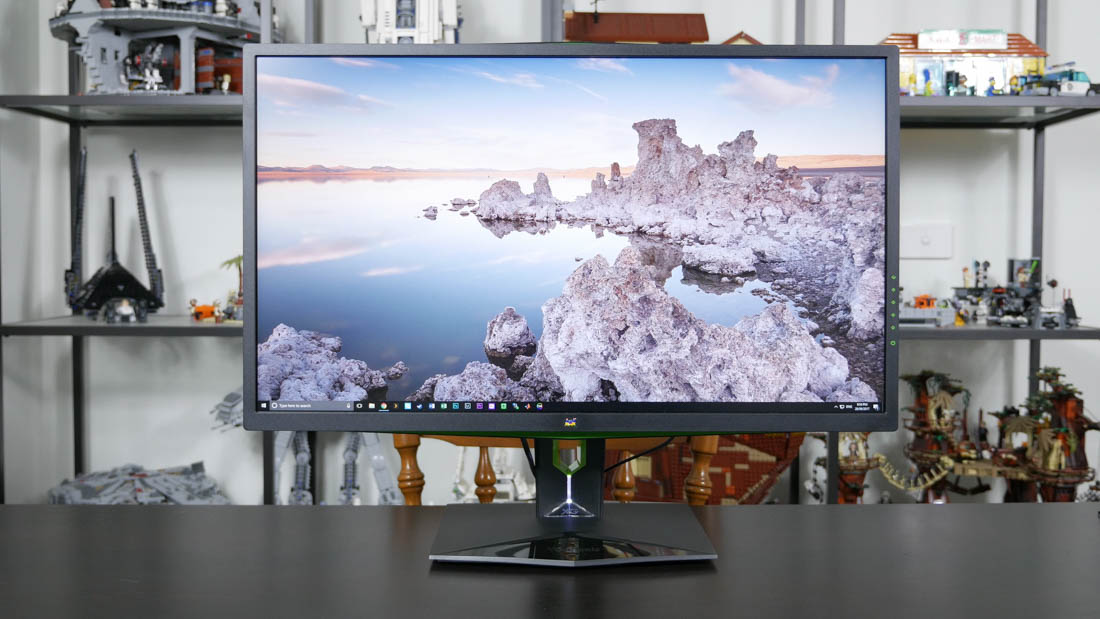
But first, let's quickly talk about display hardware. There are a number of 27-inch 1440p 165 Hz monitors on the market, but most use the same AU Optronics AHVA panel, with AHVA being the company's proprietary IPS technology. The panel has a 1,000:1 contrast ratio, 4ms response times, 350 nits peak brightness, and from my experience, fantastic viewing angles and color performance that can be calibrated to meet sRGB standards.
With me for testing is the ViewSonic XG2703-GS, which is one of the more affordable options to use this panel. Now, when I say affordable, I mean this will still set you back $700, so it sits towards the top of monitor pricing. But before you jump to comment in protest, it's worth noting that a top-end 34-inch IPS ultrawide will set you back at least $1,200, while a 4K IPS panel with G-Sync is no less than $880. And those new HDR displays coming in the near future? Expect them to be even more expensive. Plus, most people buying a new monitor probably won't think of upgrading again for many years.
So you're probably wondering why we'd recommend a 1440p high-refresh monitor over something lower resolution or cheaper. It stems from two aspects: current PC hardware, and the longevity of monitors.
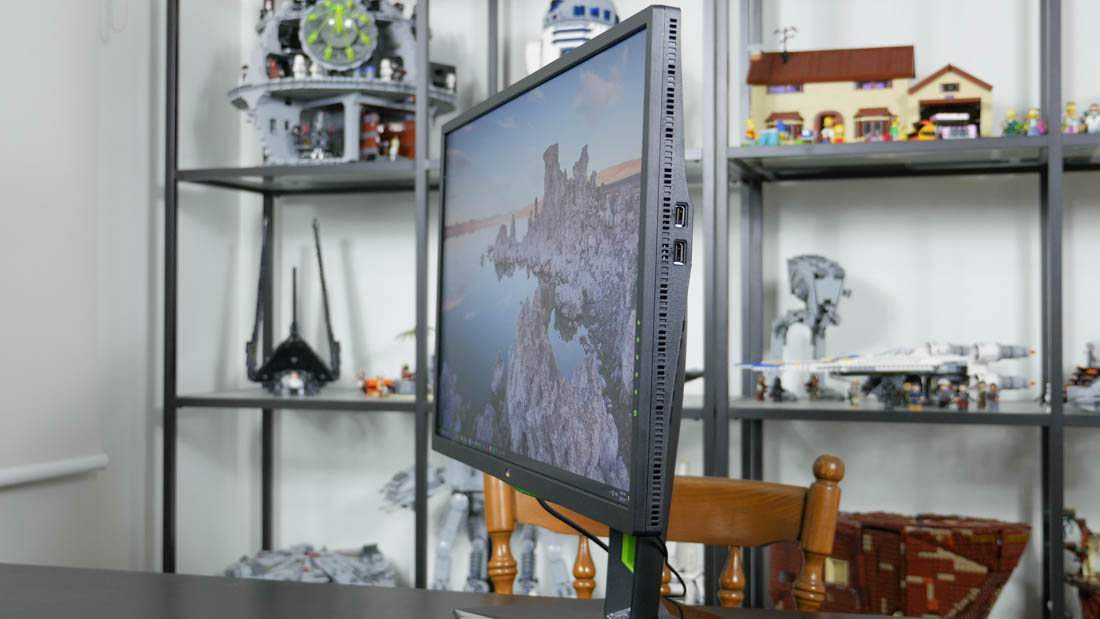
When you look at the most popular graphics cards in systems being built today, the GeForce GTX 1060 and GTX 1070 are right at the top of the charts. The GTX 1060 is a great card for 1080p gaming, but those interested in going above that resolution are looking at the GTX 1070 as a baseline.
Plus, I figure that most people looking to drop a fair bit of cash on a monitor are probably going to have at least a GTX 1070 in their gaming rig anyway, or at least that's what I'd recommend.
With the GTX 1070 chosen as our baseline GPU platform, let's take a look at how it performs at 1440p. Of course, you can go back and look at our previous coverage of GPUs at 1440p, but here's a summary of what to expect.
Note that for the following tests we actually used a GeForce GTX 980 Ti, along with a Ryzen 7 1700X processor. Our GTX 1070s were busy being used for another project, so we swapped in a GTX 980 Ti for these tests, as the performance is roughly equivalent to a GTX 1070 anyway.
| Game | Settings | Typical FPS Range |
| Battlefield 1 Multiplayer | Ultra Preset | 75-90 FPS |
| Deus Ex: Mankind Divided | Ultra Preset High Preset | 45-60 FPS 55-70 FPS |
| Fallout 4 | Ultra but Medium Shadows | 85-100 FPS |
| Mass Effect Andromeda | Ultra Preset | 60-80 FPS |
| Prey | Max Settings | 75-105 FPS |
| Rise of the Tomb Raider | Max Settings with SMAA High Preset | 55-70 FPS 65-80 FPS |
| The Witcher 3 | Ultra with HBAO+ and Hairworks High Preset without Hairworks | 55-65 FPS 80-90 FPS |
| Watch Dogs 2 | Ultra Preset High Preset | 40-50 FPS 55-65 FPS |
In the above table, you can see some of our results playing eight popular titles, several of which are very intensive at ultra detail settings. The most intensive games ran at around the 45-50 FPS mark on average, but all can be pushed above 60 FPS through slight reductions in settings that have a minimal effect on image quality. Some less intensive titles, like Battlefield 1, Fallout 4 and Prey, all run at high frame rates to begin with.
If you're more of an esports fan, games like CS:GO, Rocket League, Overwatch, and so forth can easily hit 150 to 200 FPS or more with this sort of hardware, provided your CPU is up to scratch.
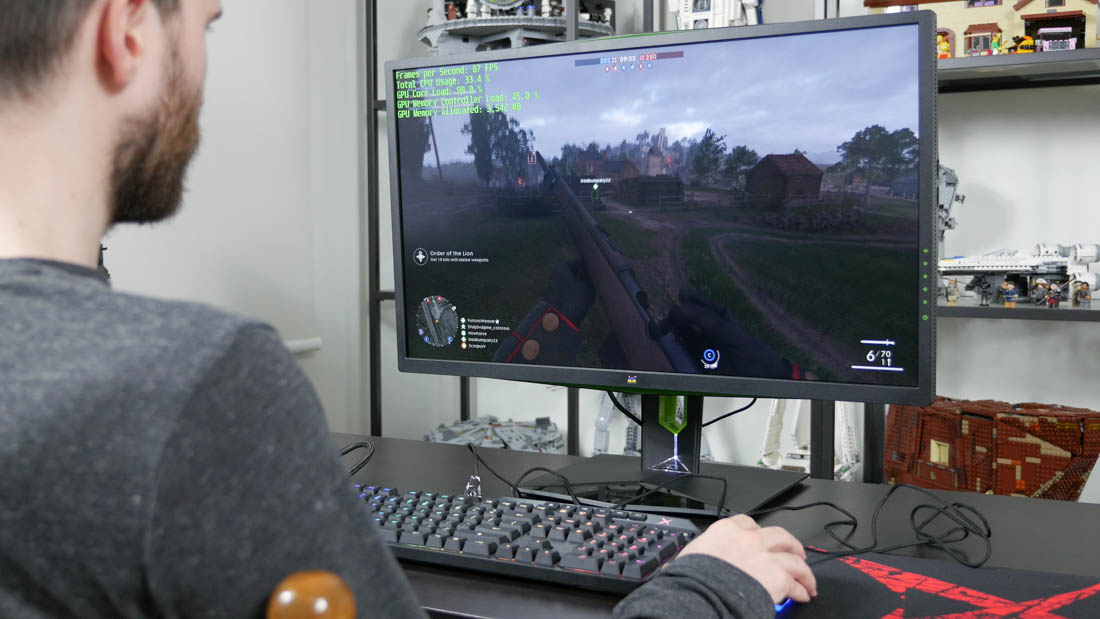
In general, what you will have seen throughout our testing is the GTX 1070 (or GTX 980 Ti) is well suited to gaming at 1440p. At ultra detail settings, the GPU sits at around 60 FPS in most modern AAA titles, but if you're willing to sacrifice a few settings, your frame rate can push well into the 80 to 100 FPS zone. More powerful graphics cards like the GTX 1080 or GTX 1080 Ti will hit these higher frame rates more often and at higher detail levels.
At resolutions higher than 1440p, such as 4K or 3440 x 1440 ultrawide, it's unlikely you'll be consistently hitting 60 FPS at ultra detail settings, particularly at 4K. As a gamer that prefers performance over resolution, this is why 1440p is such an attractive option. You'll still get a high-quality gaming experience with increased detail over 1080p, but unlike with even higher resolutions it's actually possible to hit high frame rates on popular graphics cards like the GTX 1070.
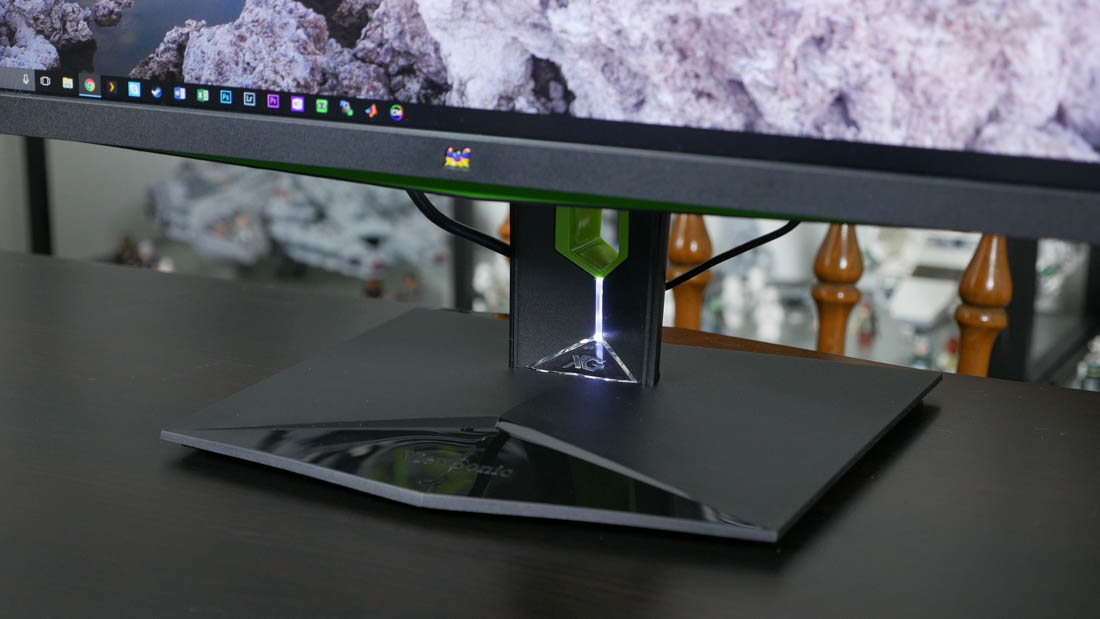
With this in mind, it makes sense to get the most out of gaming at 1440p, and that starts with a high refresh monitor. If you use a GTX 1070 or better, a standard 60 Hz 1440p display is likely not making the most of your hardware. If a game runs at well above 60 FPS, like Prey at ultra quality settings, your experience on a 60 Hz monitor won't be nearly as smooth or fluid as on a monitor that pushes above 60 Hz. The difference even going to 100 Hz is massive and clearly noticeable while gaming; it's something you really have to try yourself to fully understand, but once you experience it, you'll definitely be craving higher refresh rates over higher resolutions.
At 1440p, there are several options for higher-than-60 Hz monitors. The most common use an older 144 Hz TN panel, while newer options use the 165 Hz AHVA IPS panel we discussed earlier. The superior quality IPS display and 21 Hz higher refresh rate introduce around a $150 price premium. If you want the best quality display in terms of contrast, viewing angles and colors, there's no doubting you'll get it with an IPS panel rather than TN, and the additional refresh rate is a nice bonus to have.
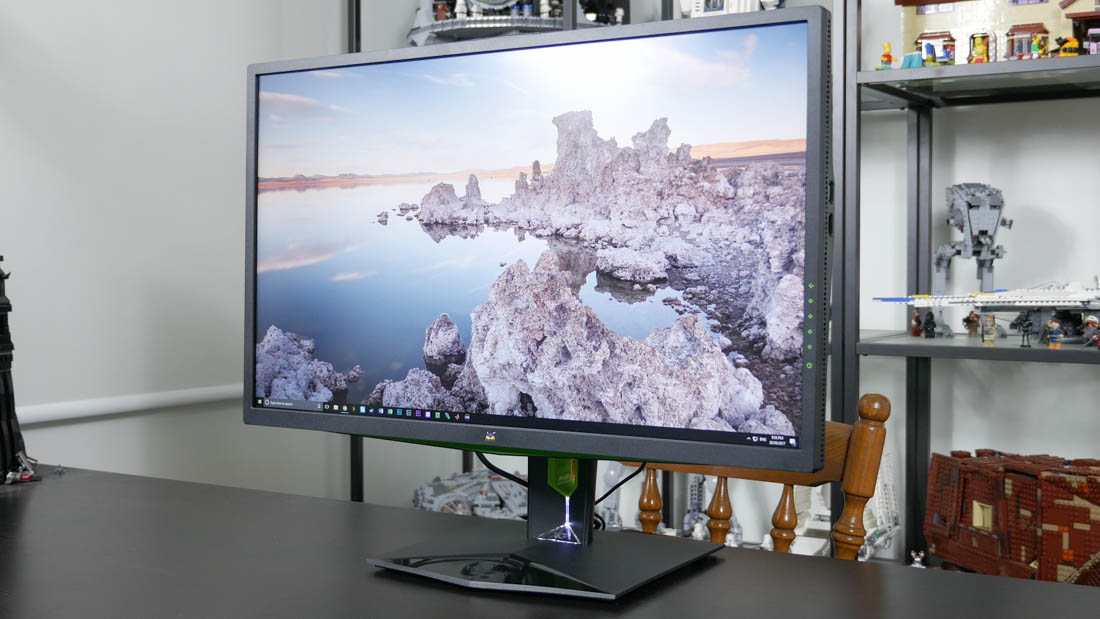
It's for this reason that 1440p monitors at 165 Hz are the ultimate option for gamers right now. They're an especially good choice if you plan on keeping this type of monitor for several years, because as higher performance graphics cards become more affordable, you'll be able to upgrade your GPU for a reasonable price and come closer to hitting the 165 Hz limit on these displays. And in the meantime, you'll still get the benefit of high refresh rates where your current hardware and in-game graphics preferences allow.
Shopping shortcuts:
- ViewSonic XG2703-GS 27" 165Hz IPS G-Sync Monitor on Amazon
- ViewSonic XG2703-GS 27" 165Hz IPS G-Sync Monitor on Newegg